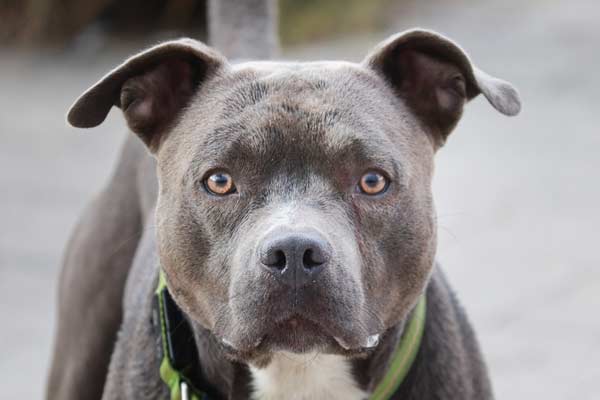Are Pit Bulls Banned in Canada?
Can I Have A Pitbull In Canada?
The ownership and importation of several dog breeds considered aggressive or dangerous are prohibited in many nations worldwide. This ban is in place to safeguard the general populace from unintentional dog attacks.
You should be aware that Canada is one of several countries with such stringent laws if you’re considering traveling there. Here is an overview of this matter.
Are Pit bulls Legal In Canada?
Pit bulls are banned in Canada, but the federal government doesn’t regulate dogs. That means it’s up to the provinces and territories to ban or allow pit bulls. In addition, each province has its specific laws regarding the ownership of pit bulls.
So if you’re planning to visit a friend in another province or territory, it’s essential to know that your new home’s laws may differ from what you’re used to.
Where Am I Allowed To Own A Pit Bull In Canada?
As stated earlier, many provinces in Canada ban pit bulls. However, some don’t restrict ownership of those already living there.
In Quebec and Ontario, for example, it’s illegal to own a pit bull (or any other dog) unless you have been given written permission from your local animal control agency. Pit bulls and other dog breeds such as (American Staffordshire Terriers) have not been allowed since 2005.
The province has also prohibited any new breeding facilities from being established within its borders since 1991.
This is due to concerns over disease transmission from animals housed together in close quarters without proper ventilation systems and sanitary conditions.
The dogs may be impounded if you are found in possession of one of them without the necessary papers from your city or town hall. They’ll be taken and put up for adoption at the nearest shelter.
In Manitoba and Prince Edward Island, on the other hand, only specific breeds are banned. These include American Staffordshire Terriers (Staffies), American Pit Bull Terriers (Pit Bulls), and Rottweiler-type breeds (German Shepherds).
You can still keep any other kind of dog provided it has been vaccinated against rabies within 30 days before being brought into Canada. However, if someone gets their pet into Canada illegally, they will face fines of $100-$1000.
This depends on how many times this happens before deportation back home.
What Happens If You’re Caught With A Pitbull In Ontario?
A $10,000 fine or six months in jail might be imposed on the owner for noncompliance.
Are Pit bulls Legal In Alberta?
Certain municipalities have breed-specific legislation in Alberta. For example, pit bulls must be muzzled, leashed, and sterilized in Calgary, Red Deer, and Edmonton.
Additionally, all dogs over four months old must wear a collar with identification tags visible at all times in these cities. However, pit bulls must be muzzled and leashed in places like Lethbridge and Medicine Hat.
What Other Provincial Regulations Concerning Pit Bull Ownership Exist in Canada?
Here are a few additional provinces with pit bull laws.
Nova Scotia
In Nova Scotia, the law requires pit bull owners to spay or neuter their dogs at the age of six months. If the owner can show proof of insurance coverage in case the dog strikes someone or damages property, they can get a permit for an unaltered dog.
New Brunswick
In New Brunswick, pit bull owners must keep their pets on a leash no longer than 1.8 meters when in public. They must also ensure they are muzzled when off private property.
In addition to this requirement, owners must also:
• Take their dog to obedience training classes at least once every two months for three hours. This is called basic obedience.
• Have their dog spayed or neutered?
British Columbia
In British Columbia, the breed is not illegal. However, failure to muzzle a vicious dog can result in fines of up to $500. Some municipal governments, such as the City of Vancouver, offer regulations on dog ownership in the region.
Are Vets Supposed To Report Pit bulls?
Veterinarians and veterinary nurses may alert authorities in the public interest, despite neither a legal nor ethical requirement. Ultimately, it is up to each expert to decide whether or not to report.
Are Pit bulls Family Dogs?
Pit bulls are great for children. Pit bulls are an affectionate, people-oriented breed that prospers in a family setting. They are affectionate in the eyes of both adults and children.
Young children should, however, be taught how to get along with animals and be supervised while playing with them.
Can Pit bulls Turn On Their Owner?
Pit bulls behave in unpredictable ways. They may be less sensitive to pain if they are upset or excited.
Many believe pit bulls can lead perfectly everyday lives before berserk and attacking their owners. Pit bulls are more predisposed to this than any other dog breed.
Are Blue Nose Considered Pit bulls?
The Blue Nose pit bull is not just a different pit bull breed. Several pit bull breeds can have blue noses. They are the main ancestor species of the American Pit Bull Terrier, which descended from Pit bulls with a recessive blue nose.
What Are Pocket Bullies?
The Pocket Bully is a miniature version of the American Bully. Nevertheless, unlike small breeds like Labradors, they are not purebred.
Essentially, they are a cross between an American Bully and a Patterdale Terrier. Because they are a mixed breed, they are not recognized as a significant dog breed.
Which Other Countries Have Pitbull Bans?
Similarly, the following countries have pit bull restrictions or bans if you’re traveling abroad:
• Belgium.
• The Netherlands.
• Brazil.
• New Zealand.
• Denmark.
• France.
• Finland.
Conclusion
Pit bulls are banned in Canada. This means you can’t own one or adopt a pit bull from the pound when visiting the country.
You can still admire these majestic animals at your local zoo or take one home with you if you come from a province where pit bulls are not prohibited.








